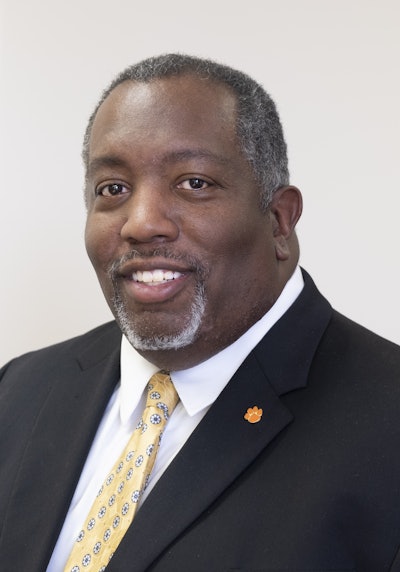 Bobby Clark
Bobby ClarkA new survey revealed that meeting basic infrastructure needs and increasing opportunities for workforce development were among the top priorities for historically Black colleges and universities (HBCUs), tribal colleges and universities (TCUs) and Hispanic-serving institutions (HSIs).
The research, conducted in December 2020 by the Minority Serving-Cyberinfrastructure Consortium (MS-CC) and non-profit organization Internet2, included responses from 291 cybersecurity professionals and administrative leaders from 144 minority-serving institutions.
With funding from the National Science Foundation and efforts from Clemson University, MS-CC was established in 2016 as part of an effort to advance cyberinfrastructure capabilities at minority-serving institutions.
“We are lucky to find ways now to solidify that organization and that consortium in a way that will build trust and give opportunities to minority serving institutions of all types that Clemson has been afforded to be able to advance their research goals,” said Bobby Clark, director of CCIT Procurement and Vendor Management at Clemson University.
Current participating institutions include Jackson State University, Alabama A&M University, Florida A&M University, North Carolina A&T University, Claflin University, Mississippi Valley State University, Univ. of Maryland Eastern Shore, Bennett College, South Carolina State University, Dillard University and Tuskegee University.
 Dr. Joel Cutcher-Gershenfeld
Dr. Joel Cutcher-Gershenfeld“These minority serving entities are working together in the 21st century so that data and computing resources can be harnessed to advance separate and joint interests,” said Dr. Joel Cutcher-Gershenfeld, professor in the Heller School for Social Policy and Management at Brandeis University.
The report indicated that the areas of science and engineering, workforce development, energy and environment, social science and culture were high priority associated with computing and data among the respondents. However, they found them difficult to attain.
As for infrastructure issues, respondents rated cybersecurity the highest of importance followed by using data and computing to attract and retain faculty as well as fund research, the research noted.
In terms of sharing resources and expertise, collaboration among HBCUs and HSIs was favored by 83.3%. However, active sharing among minority-serving institutions and collaboration with predominantly White institutions closely followed. Only 54% found little to no sharing across campuses to be important, the report indicated.
According to the research, 35% of cyber professionals reported that their institution did not have an adequate data center to support the needs of the campus community. While 27% indicated it was adequate for students and faculty teaching, but not research. Additionally, 29% said it was adequate for teachers, students and research.
For 34% of respondents, the “must haves” to meet the objectives of research programs at these institutions included “connectivity, equipment, security and access to technology.” Data storage, data analytics, training, continuing education and collaboration were among other “must haves,” the research found.
“We as a country need all our institutions to be well connected and have the proper resources to do the research that we need to get done,” said Dr. Damian Clarke, chief information officer and computer science faculty member at Alabama Agricultural and Mechanical University.
 Dr. Damian Clarke
Dr. Damian ClarkeHowever, some barriers that interfere with achieving those “must haves” include lack of funding, time and limited internet access.
The pandemic further exacerbated some of those issues.
“We need to pay more attention to that structure and resource to make sure that it is more equitably implemented,” said Clark. “And the diversity that we have in this country is fully utilized. I think that is the way the consortium can serve the best role is allowing that kind of trusted community to solve problems that we already have the answers to and to make the kind of plans and implementations that we know work and solve problems.”
To address these challenges, Clarke recommended raising awareness. He also emphasized that broadband is only a subset of the solution.
“It is an entire ecosystem of different I.T. resources that we need to do the things that we want to do online, do the type of advance research, store large data,” he said. “It is not just a broadband problem issue. Broadband alone would not solve the problem. It’s computing power, its storage capacity, its workforce development to support the infrastructure to provide the researcher.”
Similar research is being conducted at TCUs through a partnership with the American Indian Higher Education Consortium. Data from both surveys will be combined to provide more insight about infrastructure needs at minority-serving institutions.
Sarah Wood can be reached at [email protected].


















